For all those familiar with the profession of film criticism, Roger Ebert needs no introduction. The Chicago critic may or may not be the greatest to ever do it, but one thing is certain, and it’s that he’s the most iconic and instantly recognizable movie critic ever. His intimate, deeply personal, and always insightful way of talking about cinema was unparalleled, and his omnivorous approach to watching films from all manner of genres and subgenres was always welcomed by his readers.
Thrillers and other suspense movies were a genre that Ebert was particularly fond of. He had a deep understanding of these kinds of films, and a sharp mastery over writing about what made them work. He had a noteworthy reverence for Alfred Hitchcock and his views on suspense, and throughout his career, there were many exceptional movies which he referred to as remarkably suspenseful.
10
‘The Negotiator’ (1998)
Roger Ebert’s Rating: 3.5/4 stars
Although it’s nowadays perhaps one of Samuel L. Jackson‘s most underappreciated movies, and was an unfortunate box office bomb upon release, The Negotiator is nevertheless a fantastic crime thriller. Clocking in at nearly two and a half hours, it’s definitely a little too long for its own sake, but it’s so well directed and has such good performances that it makes the time investment worth it.
Ebert loved the movie, giving it a nearly perfect score. He called it “a triumph of style over story, and of acting over characters,” praising its pacing and the way it toys around with formulaic thriller tropes. He was a big fan of F. Gary Gray‘s direction and of Jackson and Kevin Spacey‘s performances, using his review to consistently compliment the film’s “conviction and urgency.”
9
‘Alien’ (1979)
Roger Ebert’s Rating: 4/4 stars
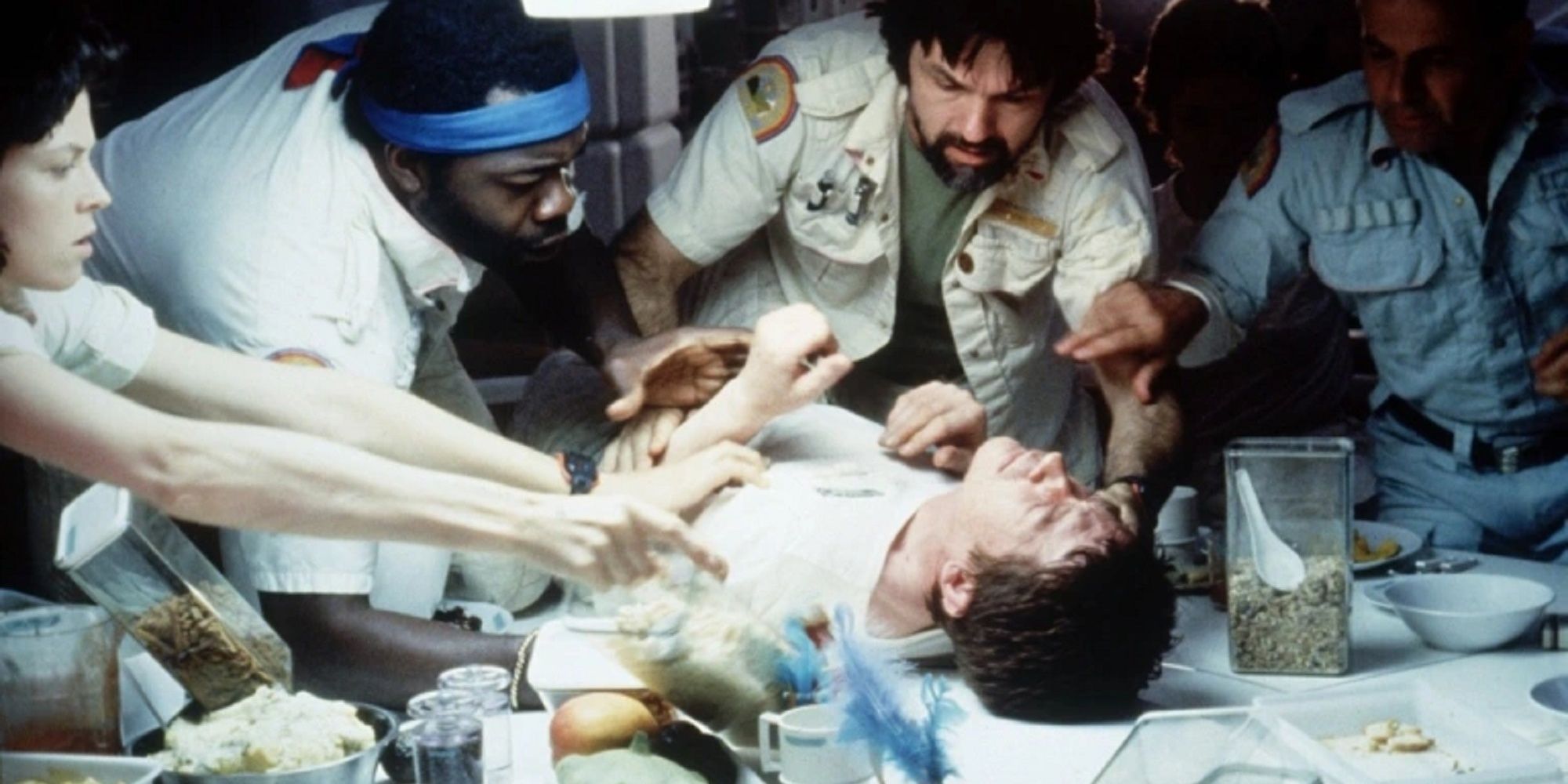
Ebert wouldn’t be alone in calling Alien one of the most suspenseful films ever made. It is, after all, fondly remembered today as one of the best and most influential sci-fi horror movies in history. It spawned a franchise that has proved of diverse quality with every new entry, but there’s simply no beating the original.
It’s one of the most timeless sci-fi films ever, and Ebert would definitely have agreed. In his review, he expressed his admiration for the way Ridley Scott finds suspense even in quieter, slower-paced moments. He compared Alien to the “all pay-off and no buildup” slasher disasters of its day, praising the way it “vibrates with a dark and frightening intensity.”
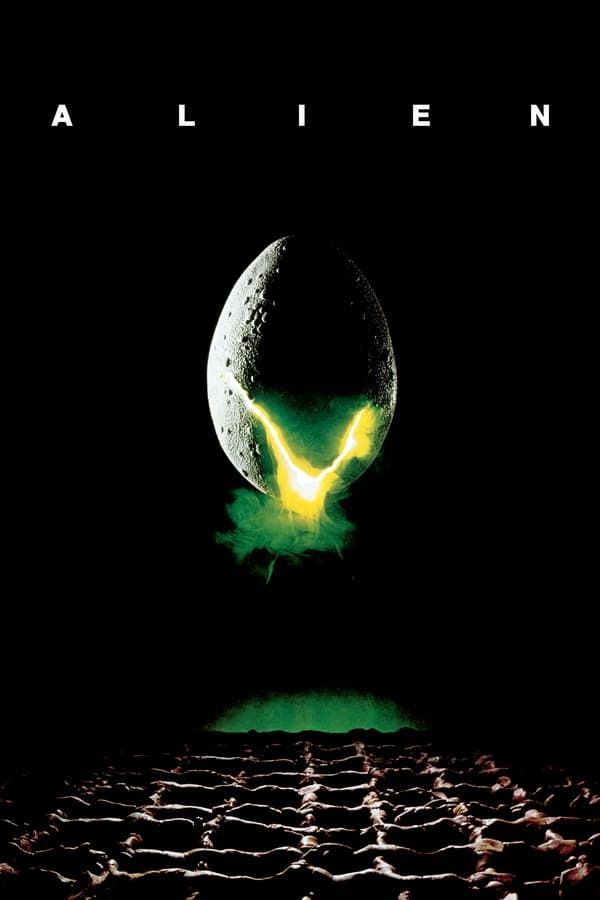
Alien
- Release Date
-
June 22, 1979
- Runtime
-
117 Minutes
8
‘Knowing’ (2009)
Roger Ebert’s Rating: 4/4 stars
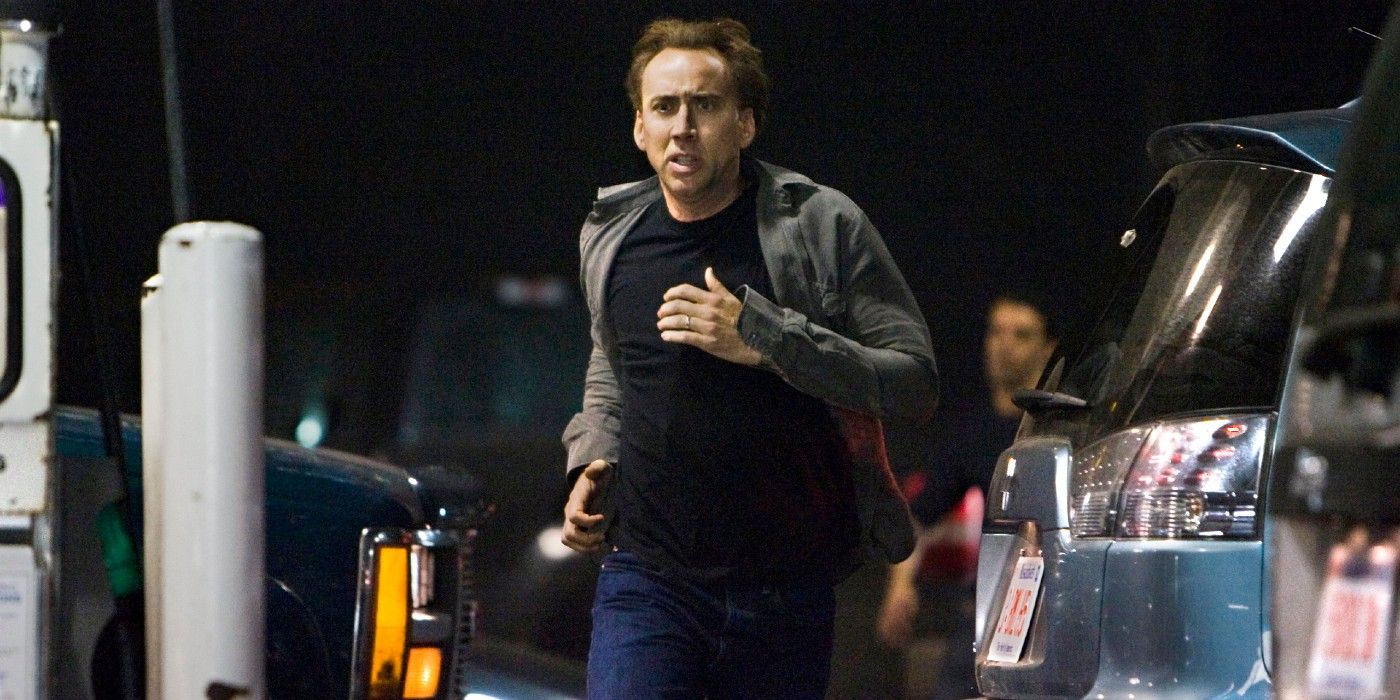
Not all Ebert reviews have aged well. He was certainly an exceptionally intelligent critic, and he was always able to express the reasoning behind his love or hatred for any film. But if ever it has been nearly impossible to understand what he saw in a movie, it’s in his unexplainable adoration for Knowing, derided by most as one of Nicolas Cage‘s worst movies.
Knowing is one of the worst films that Ebert ever gave a full four-star rating to. Where most critics and audiences saw an absurd disasterpiece, Ebert saw what he called one of the best sci-fi films he’d seen. In his review, he said that Knowing was “frightening, suspenseful, intelligent and, when it needs to be, rather awesome,” expressing nothing but love for its storytelling and direction.
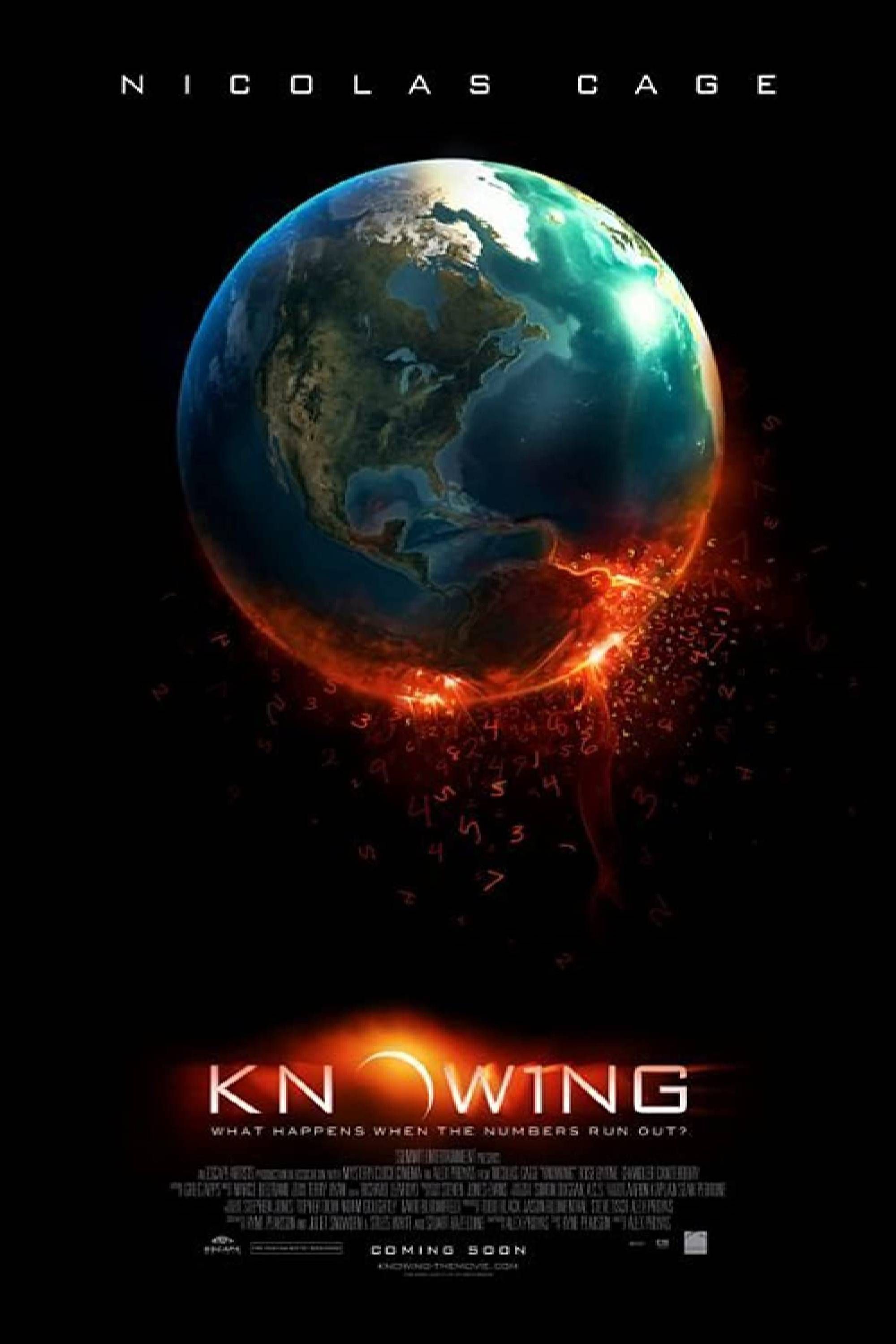
Knowing
- Release Date
-
March 20, 2009
- Runtime
-
121minutes
7
‘The Day of the Jackal’ (1973)
Roger Ebert’s Rating: 4/4 stars
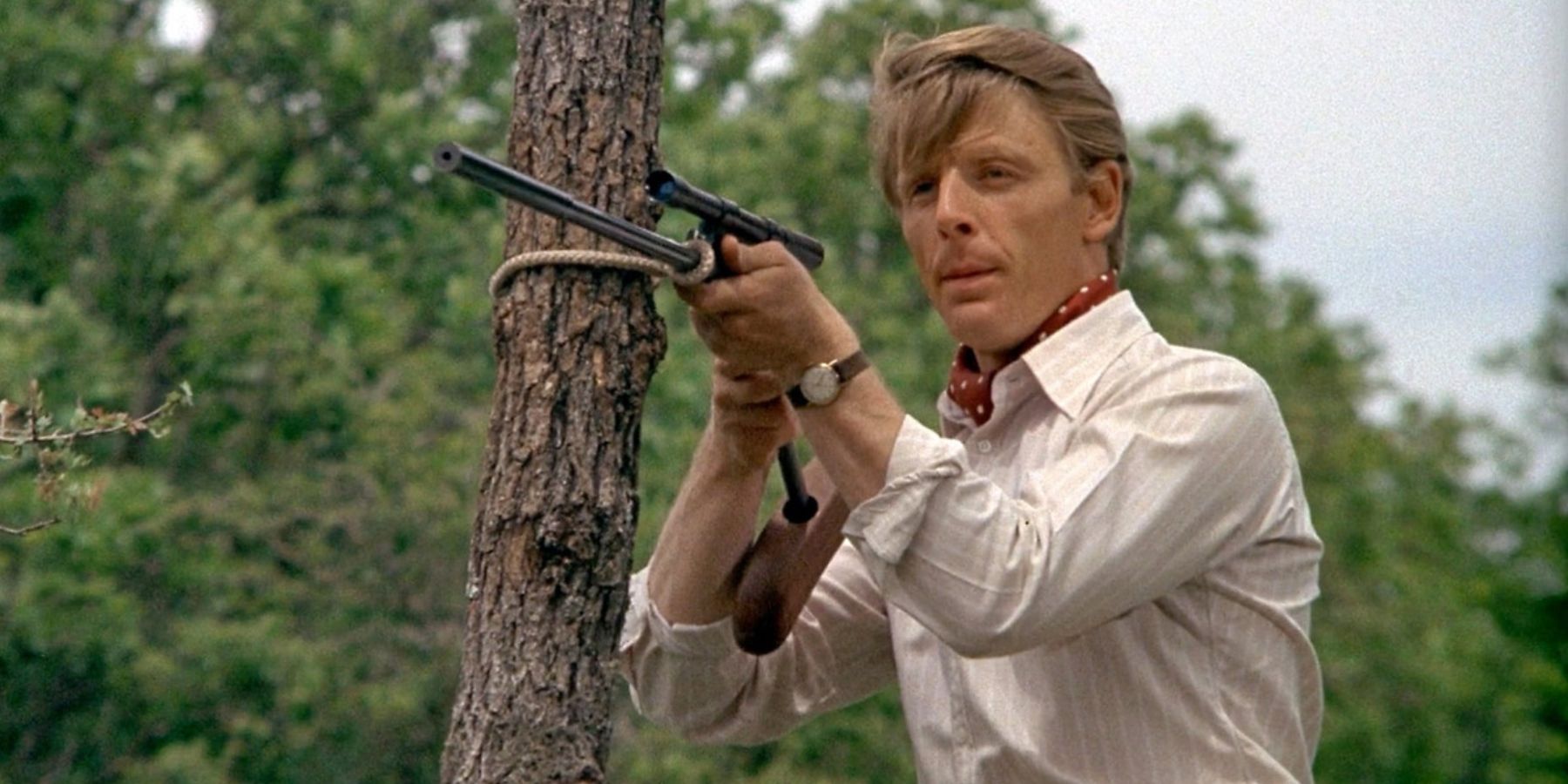
Before Peacock took the world by storm with the spy thriller TV show of the same title last year, Fred Zinnemann adapted Frederick Forsyth‘s novel and turned it into The Day of the Jackal, one of the best spy movies ever made. Critically acclaimed all across the board, it has aged beautifully as one of the best movies of the 1970s.
Ebert, who typically loved thrillers like this, called The Day of the Jackal “one hell of an exciting movie” in his review, saying that it was “not just a suspense classic, but a beautifully executed example of filmmaking.” Watching the film today, it’s hard to disagree with him. The film excels for a variety of reasons, and its masterfully crafted moments of tension are definitely among the biggest.
6
‘The Silence of the Lambs’ (1991)
Roger Ebert’s Rating: 3.5/4 stars (later revised to 4/4 stars)
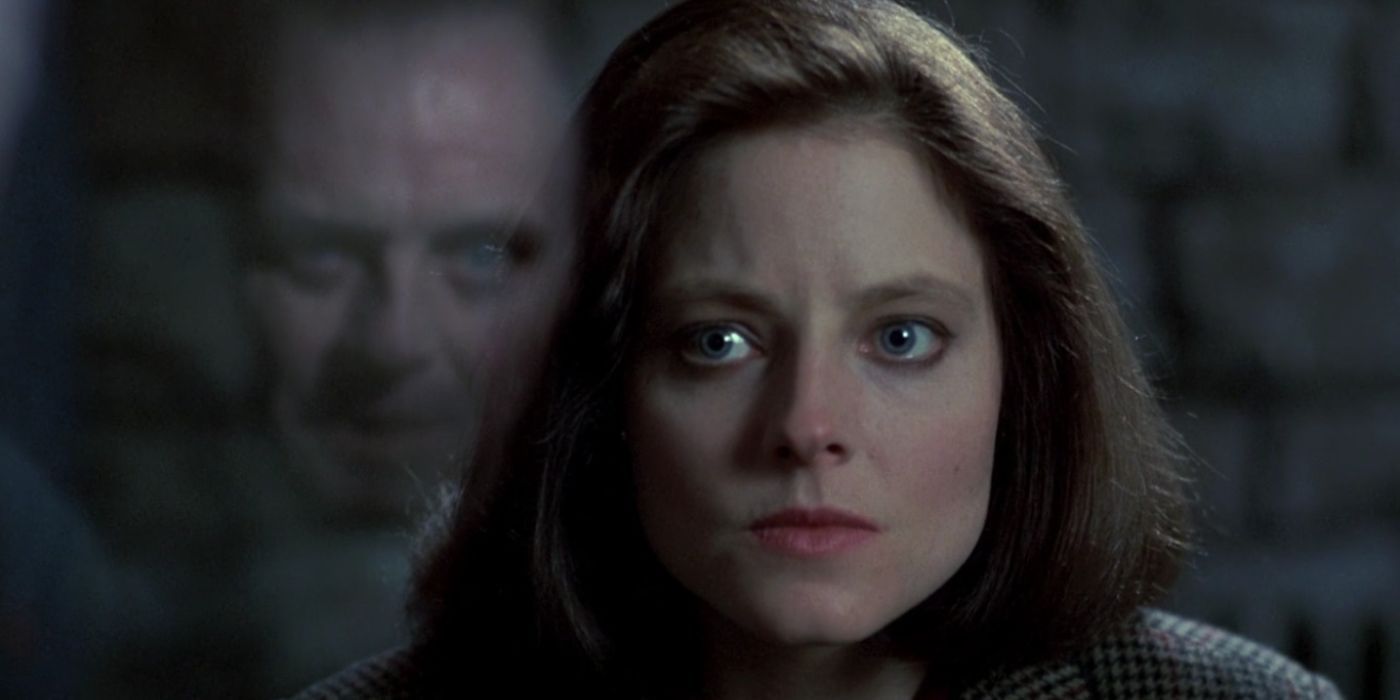
A gripping police procedural and a thriller so grim and disturbing that some would go as far as calling it a horror movie, The Silence of the Lambs is one of the most impactful films of the ’90s. It was a smash hit at the box office, critics (including Roger Ebert) adored it, and it became the third (and thus far latest) film to win the big five Academy Awards: Picture, Screenplay, Director, Leading Actor, and Leading Actress.
Simply put, The Silence of the Lambs is one of the greatest thrillers ever made. When Ebert first reviewed it, he gave it a rating of 3.5 stars, saying “it has been a good long while since I have felt the presence of Evil so manifestly demonstrated,” but pointing at some of the more “ludicrous” and “scarcely believable” aspects of the film. When he inducted the film into his Great Movies list in 2001, though, he revised his rating to a full four stars, referring to it as “frightening, involving, and disturbing.”
5
‘Panic Room’ (2002)
Roger Ebert’s Rating: 3/4 stars
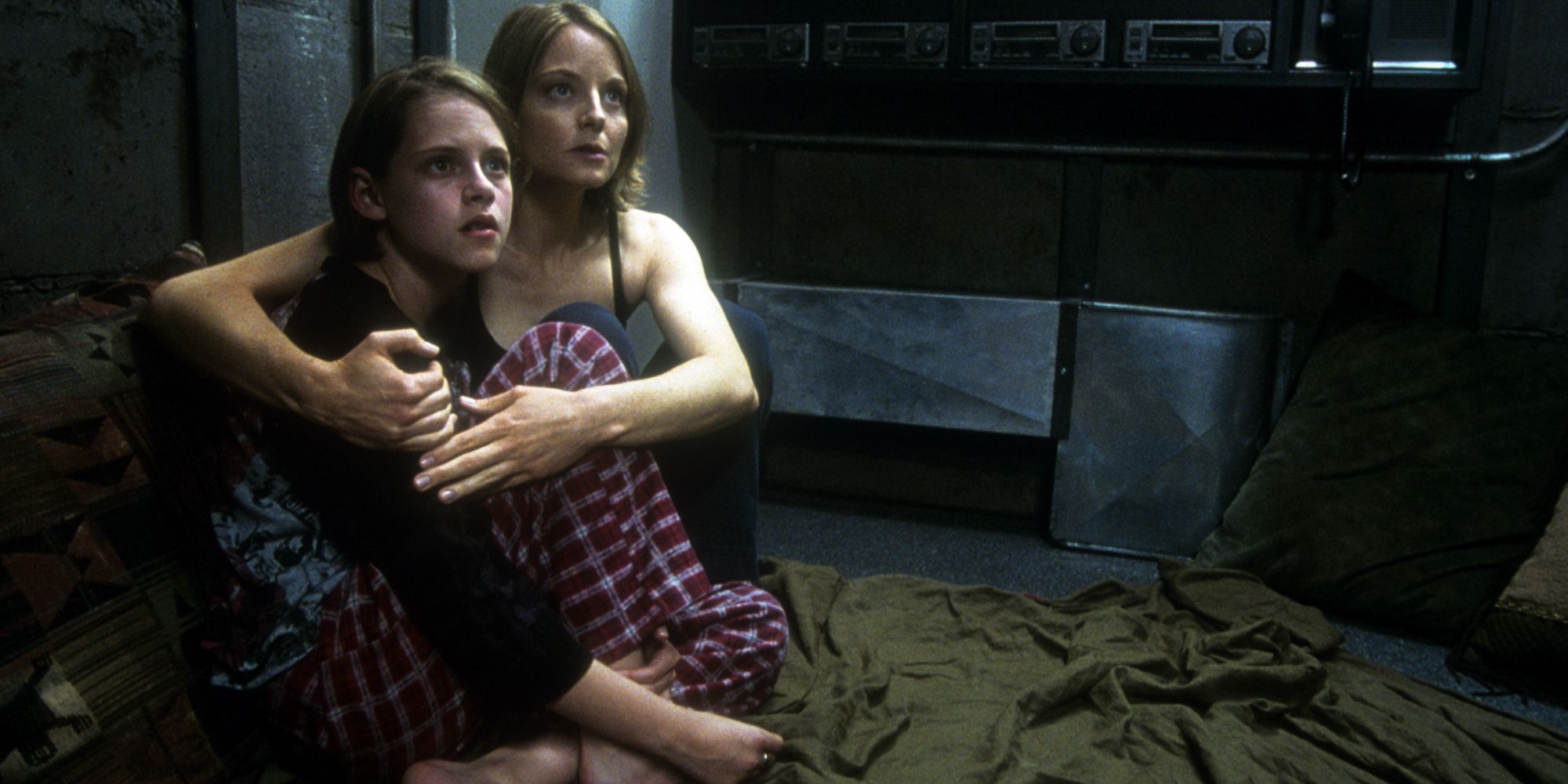
David Fincher was a filmmaker that Ebert was very fond of, having given most of his work a positive rating. This included Panic Room, the only Fincher movie that ever got an imperfect, yet very respectable three stars from the Chicago critic. It’s one of Fincher’s most underrated movies, bolstered by a phenomenal pair of performances by Jodie Foster and Forest Whitaker.
Panic Room was “as close as (he was) likely to get” to “the ideal of a thriller existing entirely in a world of physical and psychological plausibility.”
Panic Room is often referred to as one of the best home invasion movies ever, and it’s hard to disagree. Ebert definitely agreed, saying in his review that Panic Room was “as close as (he was) likely to get” to “the ideal of a thriller existing entirely in a world of physical and psychological plausibility.” He said that Fincher’s film was as thrilling and tense as a good game of chess between two masters, offering plenty of praise for both Foster and Whitaker.
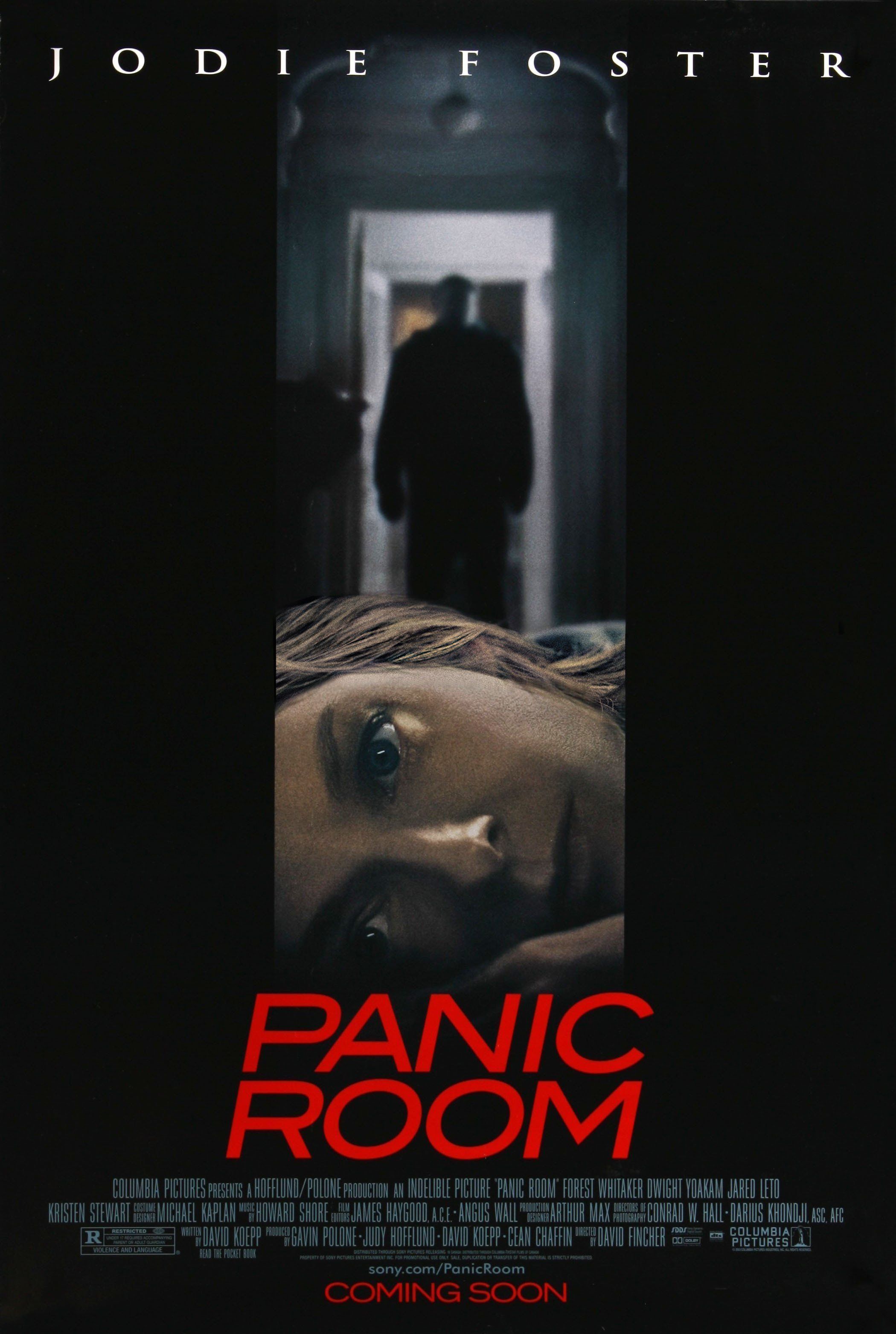
Panic Room
- Release Date
-
March 29, 2002
- Runtime
-
112 minutes
4
‘The Hurt Locker’ (2008)
Roger Ebert’s Rating: 4/4 stars
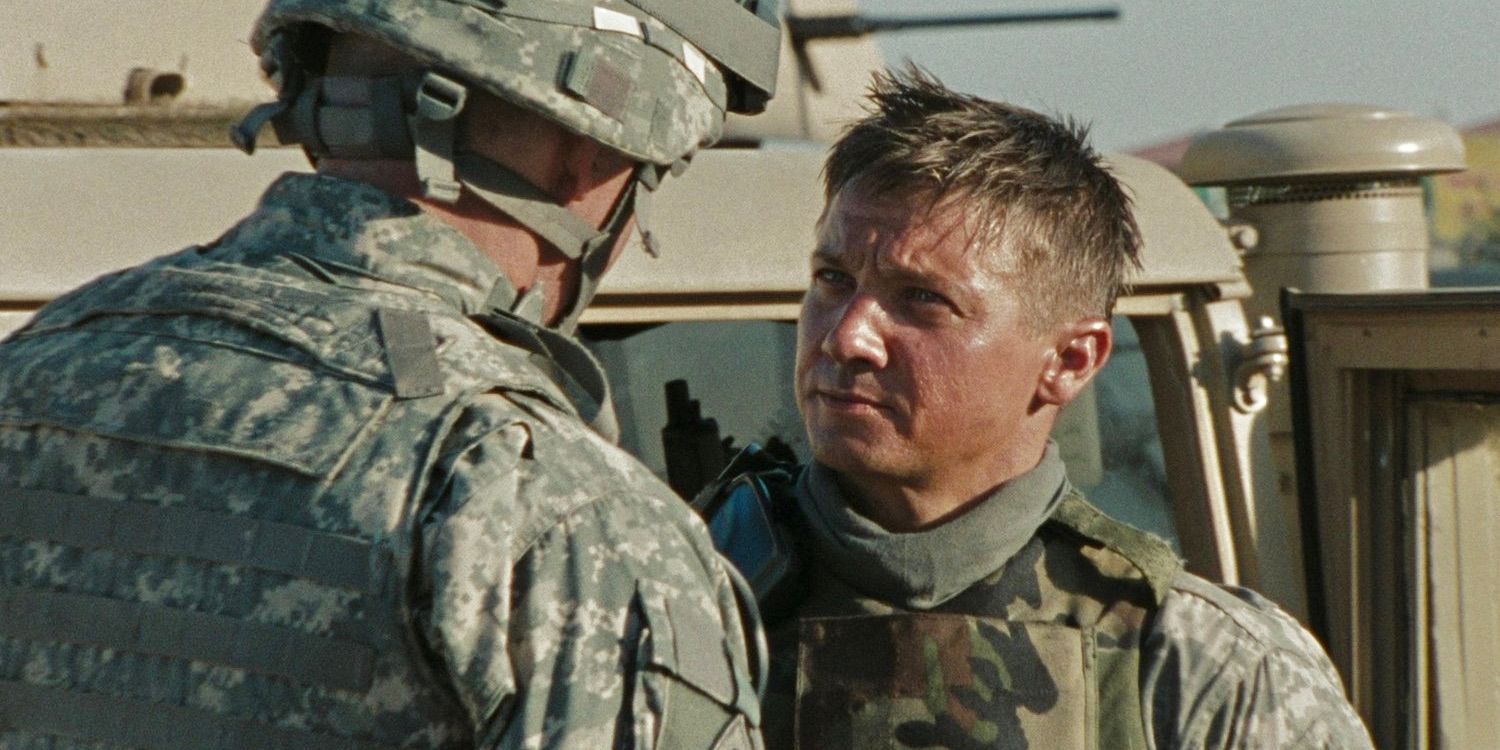
Though many people tend to call it one of the weaker Best Picture Oscar winners of the 2000s, those people are probably just not looking close enough. Far quieter, more intense, and more dramatic than most war movies, benefiting greatly from Kathryn Bigelow‘s masterful hand, The Hurt Locker is one of the best Iraq War films ever, as well as one of the most essential war movies of the 2000s.
Ebert was part of the movie’s fan club, having called it “a spellbinding war film” in his review. He expressed his approval of Bigelow’s directing and the many great performances, but seemed particularly fond of the film’s exceptional sense of suspense. Ebert made direct reference to Hitchcock and his explanation of suspense, where the filmmaker said that “when there’s a bomb under a table, and it explodes, it’s action. When we know the bomb is there, and the people at the table play cards, and it doesn’t explode, that’s suspense.” Ebert thought that Bigelow did a masterful job at building a war film founded on suspense. For a movie that’s primarily about people defusing bombs, it’s quite fitting.
3
‘Jaws’ (1975)
Roger Ebert’s Rating: 4/4 stars
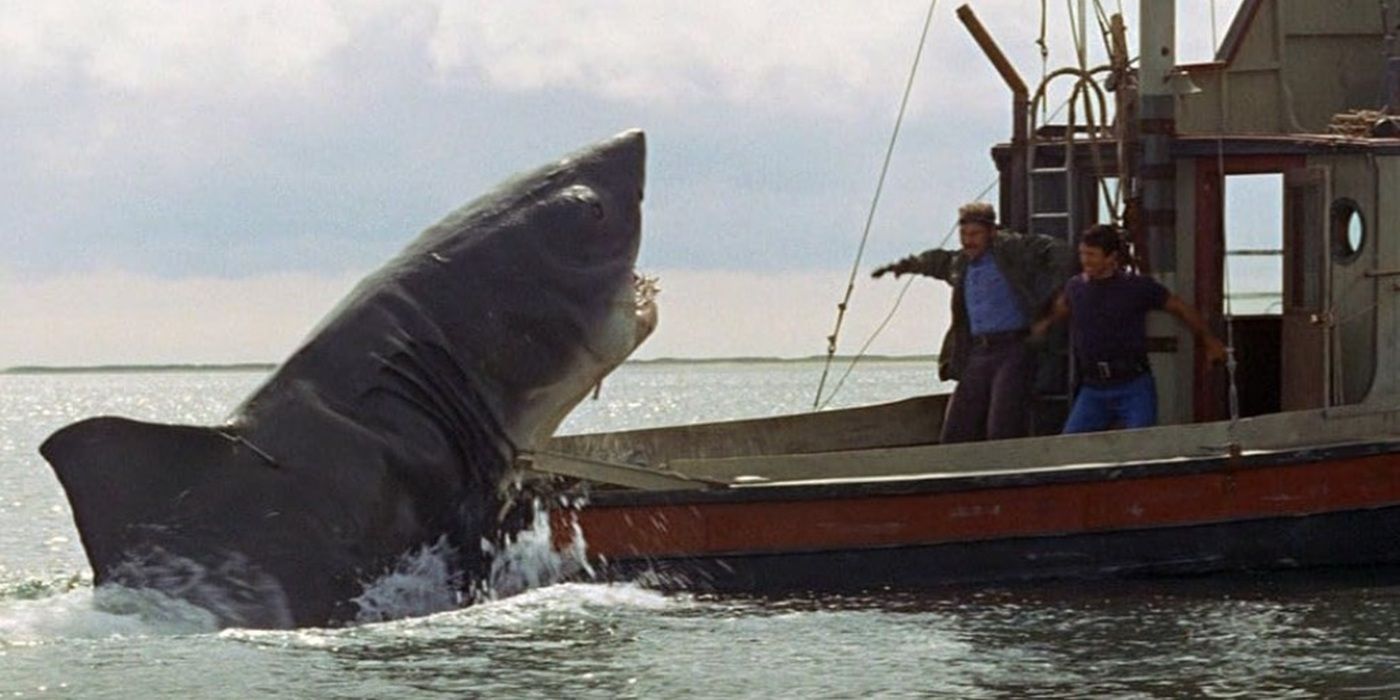
Steven Spielberg has revolutionized cinema and the filmmaking profession on several occasions, but there’s an argument to be made that his biggest contribution to the art form is the fact that he can be considered the father of the summer blockbuster, all thanks to Jaws. Part horror film, part thriller, it’s one of the quintessential “man vs. nature” movies.
Jaws is one of the 1970s’ most intense films, and Ebert seemed to agree with that statement. He called Spielberg’s masterpiece “a sensationally effective action picture” and “a scary thriller” in his review, and when writing about the film to add it to his Great Movies list, he once again made reference to Hitchcock’s bomb metaphor and expressed his admiration for how Spielberg built so much suspense and tension while barely ever showing the shark.
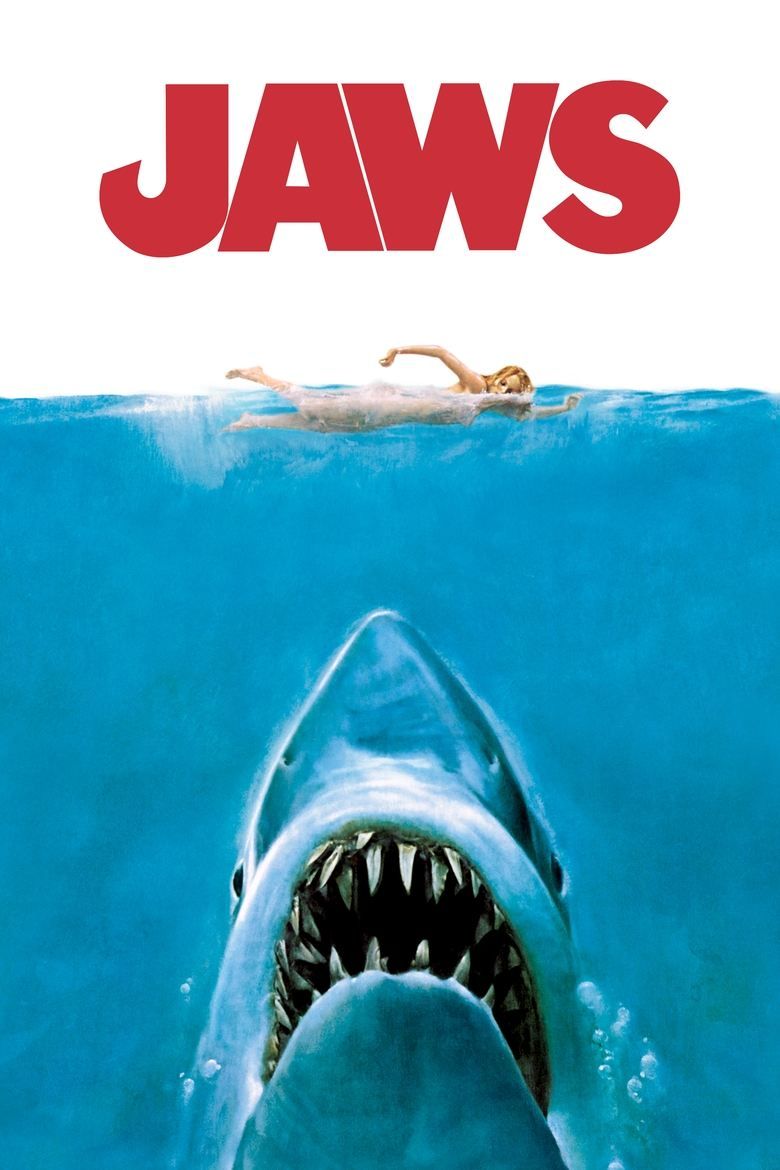
Jaws
- Release Date
-
June 20, 1975
- Runtime
-
124 minutes
2
‘The Wages of Fear’ (1953)
Roger Ebert’s Rating: 4/4 stars
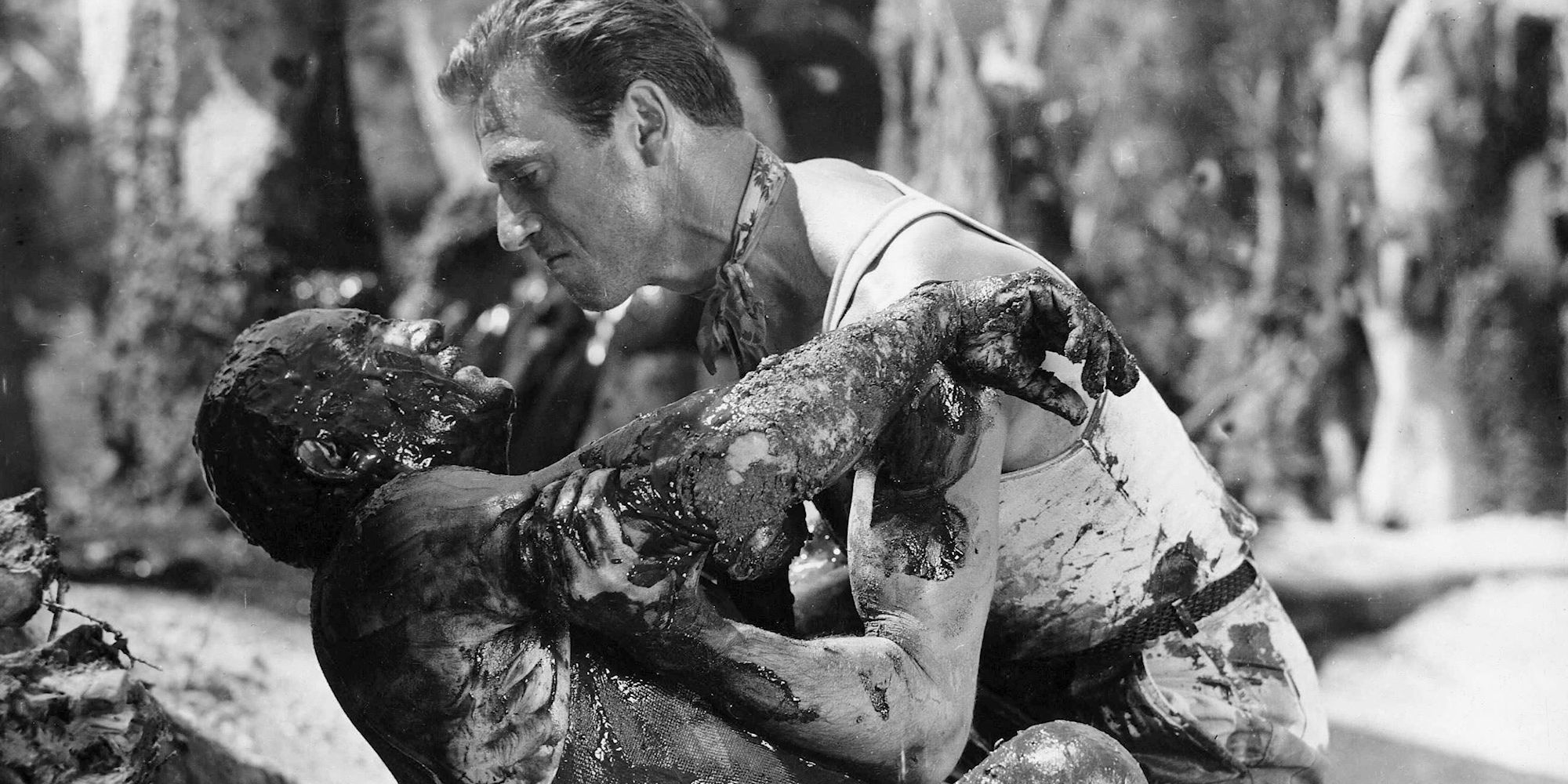
French cinema has always been one of the most exceptional and historically significant outside of Hollywood, and particularly during the mid-20th century, the country produced some of the best movies ever made. This includes the nail-biting thriller The Wages of Fear, which was—and still is—hugely acclaimed by some of the greatest critics in history. Pauline Kael called it “an existential thriller,” and Bosley Crowther said it was “fearsomely visualized.”
Of course, Ebert loved the movie, too. He said “the film’s extended suspense sequences deserve a place among the great stretches of cinema,” and he noted all the auteurs and films that its legacy impacted. All in all, anyone who knows movies would call The Wages of Fear one of the tensest films ever made; and Roger Ebert sure did know movies.
1
‘Psycho’ (1960)
Roger Ebert’s Rating: 4/4 stars
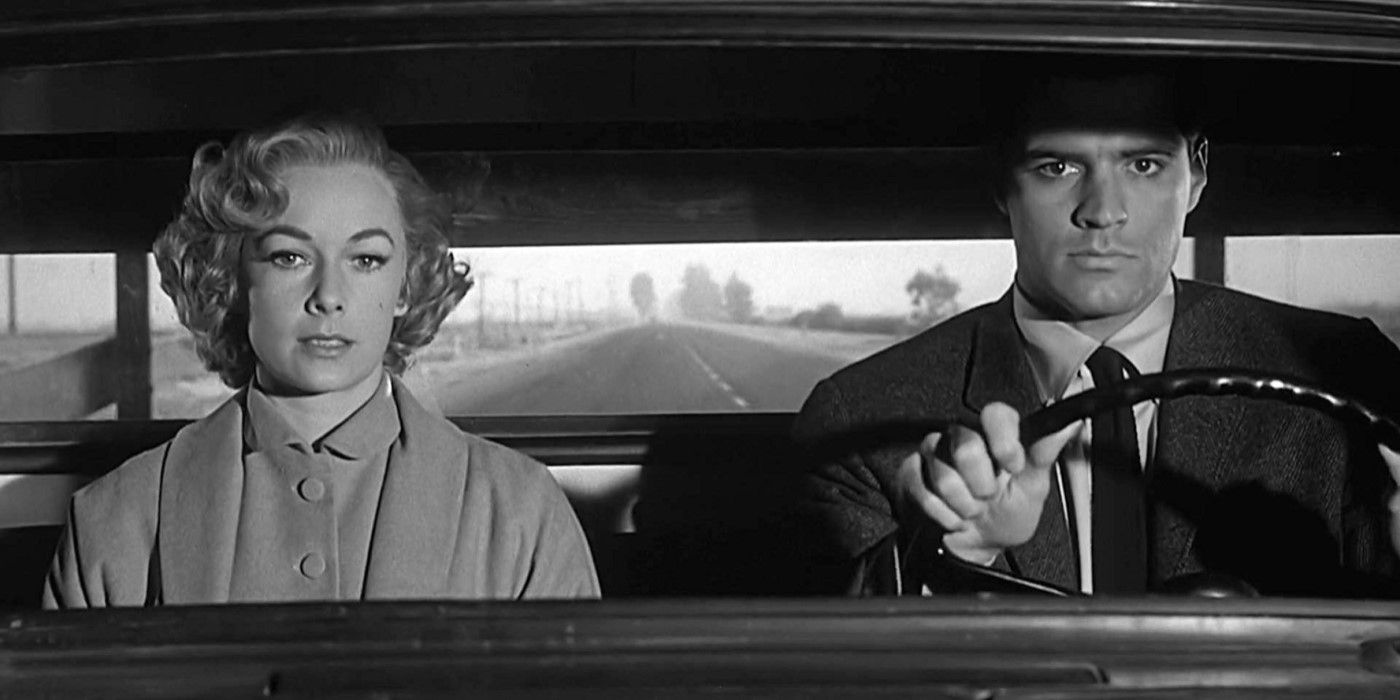
Whether one classifies it as a slasher or simply a psychological thriller that happens to be especially scary, one thing is certain, and it’s that Psycho is not only Alfred Hitchcock’s magnum opus, but one of the greatest films ever made. It wasn’t Ebert’s favorite outing of the British filmmaker (that honor went to Notorious), but it’s quite reasonable to conclude that he thought it was his most suspenseful.
Ebert might have even thought that Psycho was one of the scariest horror films ever. In his review, he expressed admiration for Hitchcock’s shoestring-budget approach to bringing this story to the big screen, and he admitted that “no other Hitchcock film had a greater impact.” He called Psycho “a frightening, insinuating thriller,” and theorized that the reason it still works so well is that “it connects directly with our fears.” After all, horror and suspense are not so different. Hitchcock knew precisely how to exploit the audience’s fears to create suspense, and that’s why Ebert admired him so much.
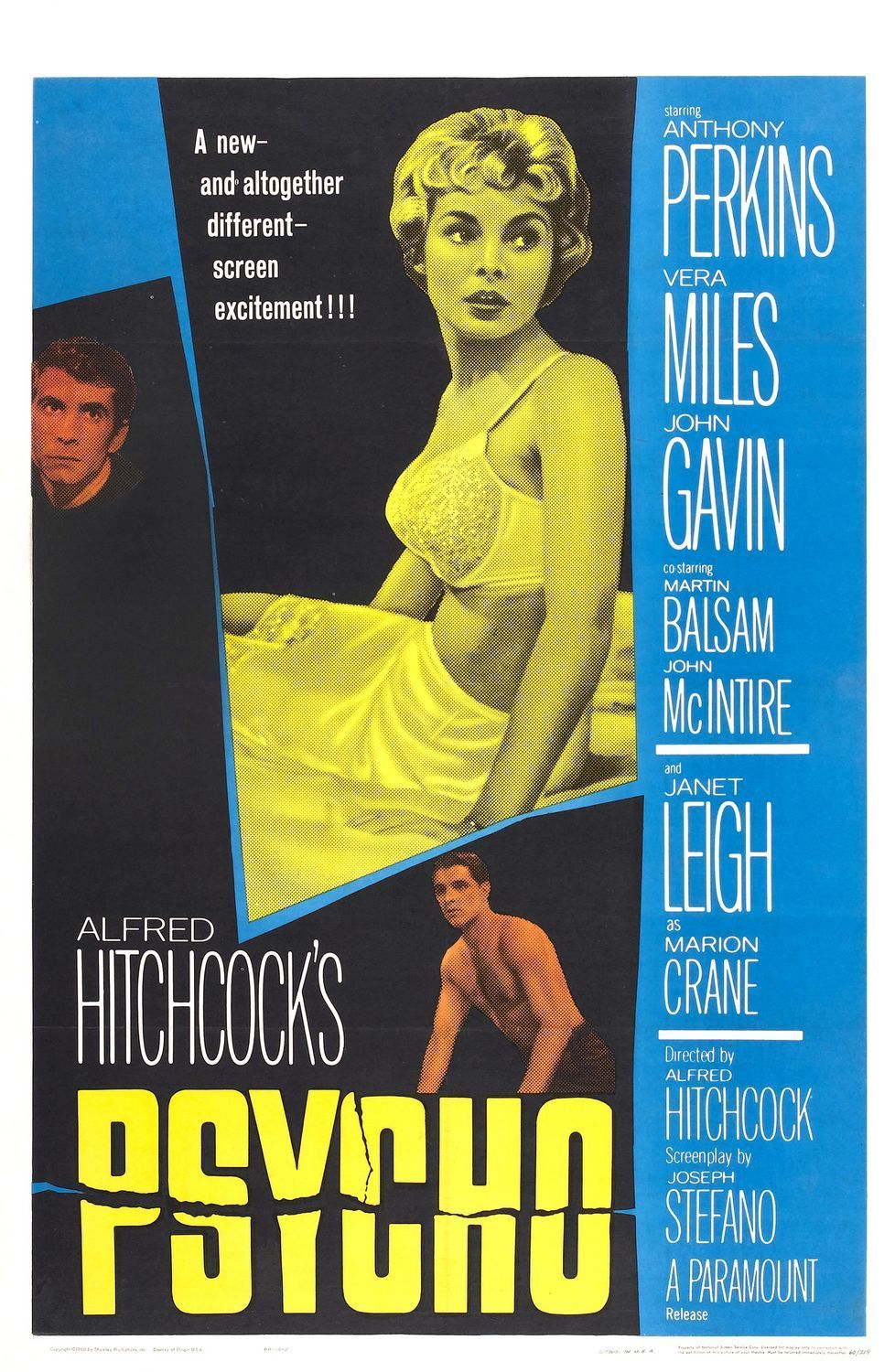
Psycho
- Release Date
-
September 8, 1960
- Runtime
-
109 minutes
KEEP READING:Roger Ebert Reviews That Have Aged Like Fine Wine


